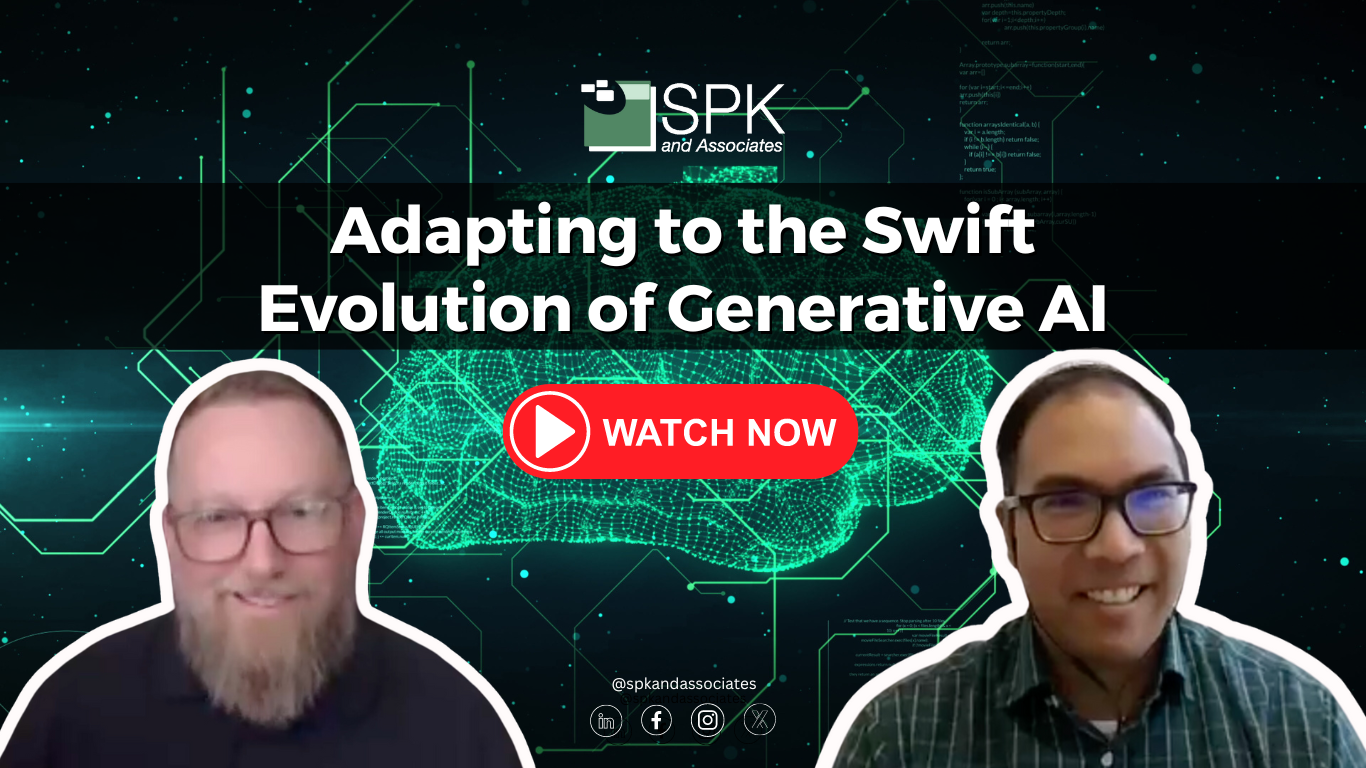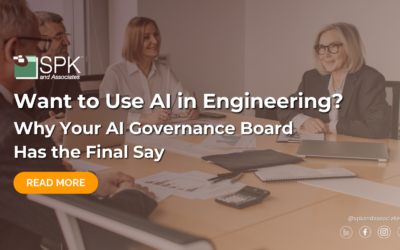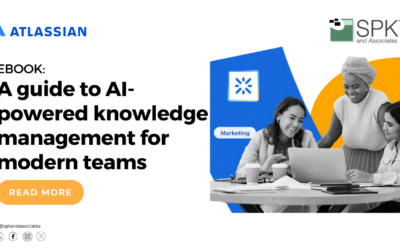Introduction
Welcome to this session. My name is Michael Roberts. I’m Vice President of Sales and Marketing at SPK and Associates, and I’m joined with—
Hi, this is Mike Solinap. I lead up our Cloud Infrastructure Practice here at SPK. The ability to adapt to the swift evolution of generative AI is crucial, and I brought Mike in to have this conversation with his experience on the data side of the business. He has a lot of expertise when it comes to handling data security.
Integrating Ethical Considerations in Generative AI
So, Mike, first question: how can businesses effectively integrate ethical considerations into the tools they’re using with generative AI and the projects they’re on to help build trust and minimize bias?
Yeah, you know, ethics is really a big concern and it’s at the forefront of all discussions nowadays in terms of AI. From my perspective, companies should have very clear policies regarding their ethical posture. First and foremost, you’ve got to define what your ethical stance is. Then, leadership should communicate those policies effectively and make them part of the company’s overall culture. It’s crucial to ensure that everyone, from the bottom to the top, is on the same page in terms of your goals and how you want to leverage these services.
From a technical perspective, there are things like comprehensive automated testing and manual testing to cover all corner cases. That’s really important. Incorporating limited focus groups as part of your release process can also be an effective approach. Keeping humans in the process at some level is good when you need to check the machines.
The Role of a Data Strategy in Harnessing Generative AI
Exactly. So, another question: as you know, we see customers with very fragmented data environments. Can you elaborate on the role of having a data strategy and trying to harness the full potential of generative AI?
With large companies, they may have many applications, and understanding all potential data sources is a big challenge. As your company builds out its data lake to aggregate all data, you need a strong data cataloging strategy. For those who don’t know, a data catalog is another system that helps you collect all metadata around your data sources. It also comes with corresponding data discovery and management tools and provides an inventory of all your data assets across the entire company. This is important because it helps people consuming your data understand what it is and consume it more productively, rather than figuring it out on their own.
For example, you might want to understand from the data set who owns it, who the stakeholders are, if there is any sensitive data in it, and what other teams rely on that data. Understanding these dependencies is crucial because you may want to get input and context from those teams about how the data came about or what it contains.
Practical Steps for Employee AI Fluency
That gives a great perspective, Mike, on the business requirements and managing data to present it to the right groups of people, or even to ensure people know who owns the data and who can manipulate it. Can you give me some practical steps organizations can take to help employees achieve fluency in AI, specifically understanding how to use the technology and not overuse it?
The obvious answer is training and education. The extent to which you train your employees and the different levels of training are important. Some folks who you don’t think would necessarily be involved in those applications and systems may not get the best training. It’s a strong foundation to make sure training is available to everyone in your company. There are quality workshops with hands-on usage of AI tools that can help familiarize people with the technology. Internal knowledge sharing is also key. Making sure that folks within your company can share what they know prevents the need to reinvent the wheel. I think SPK can help out a lot in this area because we’ve done a lot to align strategy and execution when it comes to AI usage.
Awesome. Thanks, Mike, really appreciate your time today. For those of you watching, if you want to catch other segments like this, check out our YouTube channel. Make sure you like and subscribe for more content like this. Again, thanks, Mike, appreciate your time and insights, and hopefully, we’ll see you again next time.
Thanks, everyone.







